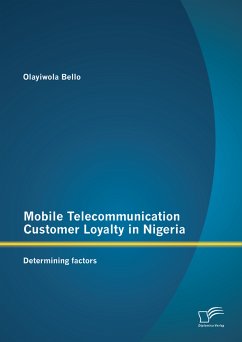With the increasing competition on the market, customer loyalty has become a decisive factor for long-term business profits. At its high, customer loyalty connotes the high entry barriers the competitor faces when entering the market, and it contributes significantly to a reduction of marketing costs. To attract new customers, companies are required to invest a lot of time and money which can result in uncertainties and risks over longer periods of time. The number of loyal customers as a sign of market share is more significant than the total number of customers. More loyal customers translate to high profits. Loyal customers will continue to purchase or receive the product or service from the same enterprises, and they will be willing to pay higher prices for the quality products and first-class services, thereby increasing sales revenue. Consequently, the focus of many enterprise managers at this point is on marketing management aspects to improve customer loyalty in order to gain the competitive advantage in the face of fierce competition. The importance of customer loyalty has been identified by many researchers and academics in the past years. This importance is also predominant in the telecommunication industry and, consequently, the Nigerian telecom industry. This book attempts to assess and analyze the variables that influence a mobile phone subscriber's loyalty and how Nigerian service providers can enhance this loyalty. The study is based on a survey that uses the quantitative approach. A structured questionnaire was developed and personally administered to a sample of University of Ilorin students across four major GSM operators in the country. Four hundred (400) respondents were sampled through a stratified random sampling. Out of this, three hundred and forty-eight (348) copies of the questionnaire, constituting an 87% response rate, could be used for the analysis. Of the eleven (11) operational factors that were used to assess loyalty of customers in the Nigeria Mobile Telecoms industry, all variables except Brand Image and Service Centre Quality were found to be capable of influencing customer loyalty and also considered as the most important loyalty variables in the industry. The unavailability of Mobile Number Portability was found to be a prominent factor in tying consumers down to service providers, while the generally low satisfaction with the present state of service delivery in the industry also plays a role. Therefore, the retention which the service providers were able to enjoy can be described as circumstantial. The given recommendations include that the service providers embark upon drives that will reduce dropped calls to a bare minimum, that they improve call quality, and that they develop SMS delivery standards.
Dieser Download kann aus rechtlichen Gründen nur mit Rechnungsadresse in A, B, BG, CY, CZ, D, DK, EW, E, FIN, F, GR, HR, H, IRL, I, LT, L, LR, M, NL, PL, P, R, S, SLO, SK ausgeliefert werden.









